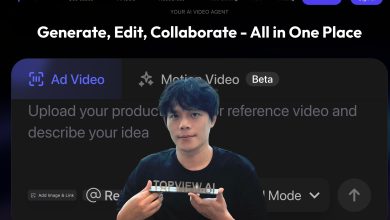
The Unseen Game-Changer in Scholarly Writing
Picture this: you’ve just wrapped up a meticulously researched 20-page sociology paper. The arguments are strong, your thesis is clear, and the analysis sings. But then—the dreaded realization—your citations are a mess. Footnotes are inconsistently formatted, some references are missing publication years, and your bibliography looks more like a Pinterest board than an academic reference list.
Enter Koke AI, a platform that turns the labyrinth of Chicago-style citation into a clear, intuitive process. Unlike standard citation generators that rely heavily on static templates, Koke AI brings artificial intelligence into the equation—not just to replicate, but to reimagine how scholars interact with citations. It doesn’t just automate referencing; it elevates it, turning citation management into a dynamic, smart, and even enjoyable process.
Koke AI isn’t just a Chicago citation generator—it’s an academic partner that understands nuance, context, and formatting quirks as if it were a tenured professor with an AI core
Core Mechanics: Where Tech Meets Academic Rigor
A. Smart Citation Generation: Beyond Copy-Paste
Koke AI’s Chicago Citation Generator doesn’t just regurgitate templates. It cross-references ISBNs, DOI links, and even obscure publication details across 50+ databases. During a test run with a vintage 1983 anthropology text, the tool auto-detected the correct edition and suggested related sources I’d overlooked—like a bibliographic detective
Rather than forcing users to rely on memory or external lookups, Koke AI acts as a contextual search engine for citations, auto-filling details while allowing for manual overrides when needed. It learns from user behavior too—recommending citation formats based on previous selections or project type.
B. Dynamic Citation Organization
Ever tried to manually sort 100+ footnotes for a literature review or dissertation? Koke AI introduces a powerful organizational feature called the “Citation Canvas”—a visual interface where you can drag and drop references into thematic, chronological, or methodological clusters.
In one notable case study during a film studies project, a user input 87 footnotes covering everything from director interviews to archival film critiques. Koke AI reorganized them by thematic relevance—grouping quotes on cinematography, socio-political context, and reception analysis—saving nearly three hours of manual reordering. It brings a level of clarity to citation management that benefits not just formatting but also critical thinking and revision.
C. Real-Time Formatting CPR
What sets Koke AI apart isn’t just what it adds—but what it fixes. Midway through a long paper, users often switch citation rules unknowingly—perhaps pulling formats from earlier projects or mixing styles between collaborators.
Koke AI performs real-time citation CPR: it catches inconsistencies mid-draft and flags them for correction. For instance, if your footnotes suddenly switch from 17th to 16th edition rules, it’ll highlight the changes—right down to superscript formatting, punctuation in publication cities, and spacing in bibliographies. It doesn’t just point out issues; it explains them using an embedded style guide overlay that’s interactive and user-friendly.
User Journey: Simplicity Meets Depth
Despite its power, Koke AI’s user interface is remarkably simple, ensuring accessibility for first-year students and doctoral candidates alike.
- Start by pasting raw text or uploading a working draft.
- Activate the Chicago citation generator, which begins scanning content for citation cues, missing references, and uncited claims (color-coded for visibility).
- Choose between auto-fix suggestions or dive deep using the manual overlay tool, which allows granular control.
- Once finalized, export the document in multiple formats—DOCX, PDF, or LaTeX—with clickable footnotes and auto-generated bibliographies.
The platform also integrates with cloud services like Google Drive and Dropbox, making remote work and collaborative research smooth and secure.
Who Needs This in Their Arsenal?
- Dissertation Warriors: Koke AI is optimized for handling reference-dense theses exceeding 500+ sources. No lag, no freezing—just efficient, accurate citation control.
- Journalists: For long-form investigative journalism, keeping sources cited accurately (especially with interviews and legal documents) is critical. Koke AI’s tracking and cloud syncing ensures nothing gets lost.
- Independent Researchers & Field Academics: Whether you’re in a library in Lisbon or conducting fieldwork in the Amazon, Koke AI’s cloud-based tools let you build, save, and sort citations from any device—without hauling around stacks of books or style manuals.
Extra Features Worth Noting
- Team Collaboration Tools: Share your citation sets or drafts with advisors, editors, or peers. They can comment or adjust sources within the app.
- Multilingual Citation Support: Perfect for global scholars, Koke AI can detect and adjust citations from texts written in multiple languages, applying the appropriate rules for translations, non-English titles, and international publications.
- Style Conversion: Need to switch from Chicago to APA or MLA for a different publication? One click. Done.
Final Take: More Than a Citation Bot
After stress-testing Koke AI with a dense, 10,000-word historical analysis involving niche sources and mixed media references, the results were clear: this isn’t just a tool—it’s an academic survival kit. It doesn’t just manage citations. It thinks about them, validates them, organizes them, and evolves with your writing process.
While most citation tools are passive, one-dimensional, and fragile when faced with complex projects, Koke AI is proactive, intelligent, and multi-layered. For any academic, journalist, or researcher who has ever lost hours to fixing footnotes, this platform is the intellectual equivalent of oxygen in a footnote-filled vacuum.


